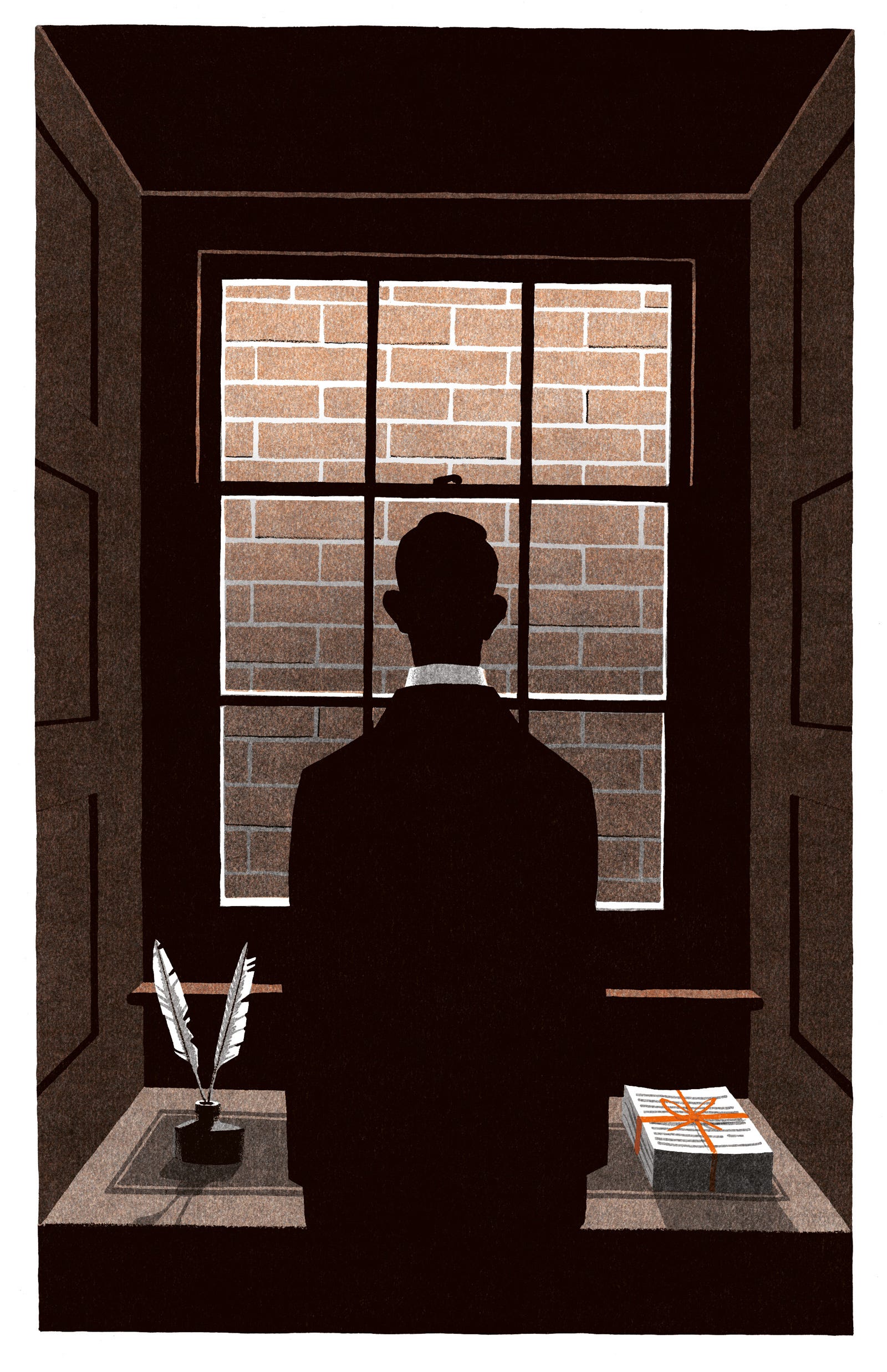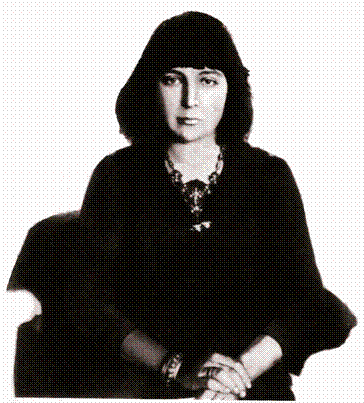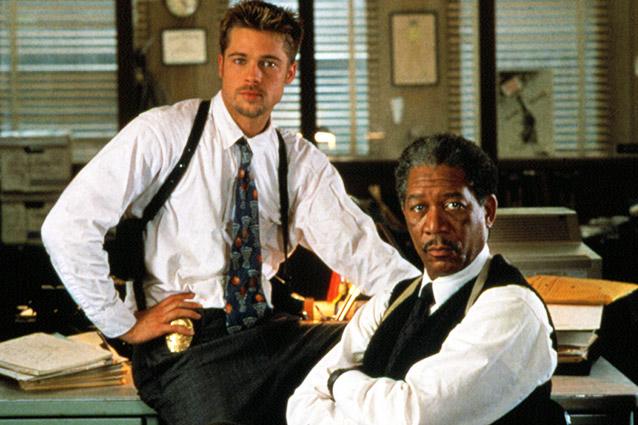 Each year, as life hems its sleeve more tightly around our wrist, we are greeted with tidings of differing sensation. There are good tidings, pleasant reminders of our privileges; small disappointments that can be mocked to raconteurish ends; and occasionally even wonderful swoons of information, turning points. If you are a family man, the best news you will ever receive will concern your children and their welfare; alone, or in a quiet couple, hints of love or respect, or even career success might be the most satisfying seconds of life. But behind each glorious memory lurks the possibility of disappointment which makes that glory all the more fantastic and delightful. The old aphorism about pessimists' never being disappointed is codswallop: they are always disappointed. They are saddened by every detail and swerve of our existence and never content with partial success, and for that reason complete success is to them an alien concept. Whenever someone quips that he does not like to be disappointed, I know immediately that I am dealing with a child. I know as well that this person will never be happy with anyone or anything because, in his heart of hearts, there is something that he hates about himself.
Each year, as life hems its sleeve more tightly around our wrist, we are greeted with tidings of differing sensation. There are good tidings, pleasant reminders of our privileges; small disappointments that can be mocked to raconteurish ends; and occasionally even wonderful swoons of information, turning points. If you are a family man, the best news you will ever receive will concern your children and their welfare; alone, or in a quiet couple, hints of love or respect, or even career success might be the most satisfying seconds of life. But behind each glorious memory lurks the possibility of disappointment which makes that glory all the more fantastic and delightful. The old aphorism about pessimists' never being disappointed is codswallop: they are always disappointed. They are saddened by every detail and swerve of our existence and never content with partial success, and for that reason complete success is to them an alien concept. Whenever someone quips that he does not like to be disappointed, I know immediately that I am dealing with a child. I know as well that this person will never be happy with anyone or anything because, in his heart of hearts, there is something that he hates about himself.
The best people on this earth – I am lucky enough to know a few – are happy at all times, fundamentally happy to be alive and healthy, happy that the sun still shines, that we have seasons, that we have fewer wars now than ever before, that the smallness of the world allows us to experience the lives of others in startling new ways. Disappointments knock on their doors (they have a very distinctive knock), but they don't answer. After a while, they proceed to a curtained window and watch the monsters skulk away, to knock at other doors. Sometimes those monsters are ones we love that do not love us back – unrequited love, however selfish, remains the greatest of our disappointments – other times we lose people close to us for a variety of causes, mostly not of our own doing. As we get older, the monsters tend to stop by more frequently; peering out the same trusted window, we see that they are more varied; sometimes they even come in pairs or threes, plying their trade like any cobbler or haberdasher. But when we are young and life stretches out before us like that one woman you would give anything to possess, soul and body – and we all have one such person – we cannot allow our coils to be blackened and tarred. We cannot evince signs of the grave, signs of refusal or indifference to life, because that would mean we were already dead. This is the premise of arguably the finest short story in the English language.
Our narrator, as opposed to the titular character, is an older man, who "from his youth upwards, has been filled with a profound conviction that the easiest way of life is the best." He is an attorney at law in what we still call Manhattan, as well as the supervisor of a triptych of oddball characters rightly appropriated from Dickensian annals: Turkey and Nippers, two Englishmen of sixty and twenty-five, respectively, and of varying tempers, and a young gopher called Ginger Nut. Their names owe their eccentricity to the narrator's wish for life to be easy and happy; frivolous monikers are part and parcel of jesting with mortality. Our story thus begins with a sort of caricature of the curious shifts in mood on the part of the narrator's staff: Turkey is well-mannered and diligent before lunch, but a wretched beast once fed; whilst Nippers only manifests the bare bones of courtesy in the afternoon. The description of Nippers's testiness (which the narrator, in another effort to play down its moral consequences, labels "indigestion") is particularly superb:
[Nippers evinced] especially a continual discontent with the height of the table where he worked. Though of a very ingenious mechanical turn, Nippers could never get this table to suit him. He put chips under it, blocks of various sorts, bits of pasteboard, and at last went so far as to attempt an exquisite adjustment, by final pieces of blotting-paper. But no invention would answer. If, for the sake of easing his back, he brought the table-lid at a sharp angle well up towards his chin, and wrote there like a man using the steep roof of a Dutch house for his desk, then he declared that it stopped the circulation in his arms. If now he lowered the table to his waistbands, and stooped over it in writing, then there was a sore aching in his back. In short, the truth of the matter was, Nippers knew not what he wanted. Or, if he wanted anything, it was to be rid of a scrivener's desk altogether.
This last observation, after a series of comic asides, is quite obviously the truth, but our narrator still makes little noise of it. When relating the insufferable behavior of Turkey, the narrator similarly obliges himself to lessen our expectations by likening his employee to an animal: "in fact, precisely as a rash, restive horse is said to feel his oats, so Turkey felt his coat. It made him insolent. He was a man whom prosperity harmed." A more astute observer would have depicted Turkey's unwillingness to wear his employer's hand-me-down overcoat as a shallow form of pride based on the entitlement of age (especially since, we are told, he and the narrator are practically coevals); but it is the narrator's interest to preserve this sideshow atmosphere for what is to come. Or, I should say, who.
Demand, that great overlord, progresses to the point that the office needs additional help ("There was now great work for scriveners"), so an ad is placed and quickly answered. It is here that we first meet the subject of our tale:
In answer to my advertisement, a motionless young man one morning stood upon my office threshold, the door being open, for it was summer. I can see that figure now – pallidly neat, pitiably respectable, incurably forlorn! It was Bartleby.
From these first lines it is clear that Bartleby is already no longer among the living. So when the narrator avers that the "mettlesome poet, Byron" could not have sat down with Bartleby to "examine a law document of, say five hundred pages, closely written in a crimpy hand," he might as well have made Byron the register of all hedonism and sensation that life offers and Bartleby his spiritless counterpart. By virtue of his name, however, one might be led to believe that Bartleby belongs in an office with a Turkey, a Nippers and a Golden Nut, but this is also completely deceiving. The newest hire wishes for nothing but the opportunity to carry out his scrivener work unimpeded by the whims of his patron, who "in [his] haste and natural expectancy of instant compliance" elects to give Bartleby some additional, menial business. And Bartleby responds with one of the most famous retorts in literary history – 'I would prefer not to,' begetting the following reaction:
I looked at him steadfastly. His face was leanly composed; his gray eye dimly calm. Not a wrinkle of agitation rippled him. Had there been the least uneasiness, anger, impatience or impertinence in his manner; in other words, had there been anything ordinarily human about him, doubtless I should have violently dismissed him from the premises. But as it was, I should have as soon thought of turning my pale plaster-of-Paris bust of Cicero out of doors.
The precedent is now set and maintained throughout. Bartleby cannot possibly accept anything more than the core task of his profession, the copying of documents, as if he himself were a shadow or imitation of life. His only response to the narrator's requests never changes, and the latter expresses his frustration in a statement that rings truer today than one hundred fifty years ago: "nothing aggravates an earnest person as a passive resistance." After numerous roadblocks, the narrator alights upon a curious conclusion:
He is useful to me. I can get along with him. If I turn him away, the chances are he will fall in with some less indulgent employer, and then he will be rudely treated, and perhaps driven forth miserably to starve. Yes. Here I can cheaply purchase a delicious self-approval. To befriend Bartleby; to humor him in his strange wilfulness, will cost me little or nothing, while I lay up in my soul what will eventually prove a sweet morsel for my conscience.
The narrator, like the reader, is aware of the duality of his condition. He should pity Bartleby, and rightly intuits that most others won't; and yet being a martyr has little benefit to himself or others. Why should it be he that assumes the burden of this dead emotional weight and "mulish vagary"? Why he and no one else? For the sweetening of his own regrets and misdeeds? Perhaps that is not symptom enough to take on this unmindful young man; perhaps the discovery of Bartleby's afterhours whereabouts will sway the narrator in another direction.
If you do not regularly read this author, the greatest artist America has ever produced, I would recommend rearranging your schedule. More than Whitman, Poe, Hawthorne, Thoreau, Emerson, Updike, and Salinger, Melville has no peers, no equals, no one who can touch him when he is at his best. His greatest work, produced at the staggering age of thirty-two, might have four or five novels worth its value; his poetry is largely unread although equally magnificent; but his greatest contribution might be his short fiction, insofar as Typee, Omoo, White Jacket, and Redburn have an anecdotal quality to them that suggests an exotic necklace of bright beads rather than a wholesome, perfectly contained pearl. But Bartleby is a pearl, the rarest of gems that has much in common with a Russian short story, also one of the best ever written. And also one that might spring from the adage: Ah, happiness courts the light, so that we deem the world is gay; but misery hides aloof, so we deem that misery there is none.
 Sunday, September 7, 2008 at 10:10
Sunday, September 7, 2008 at 10:10  From all the world thou hidest as prey,
From all the world thou hidest as prey, 




